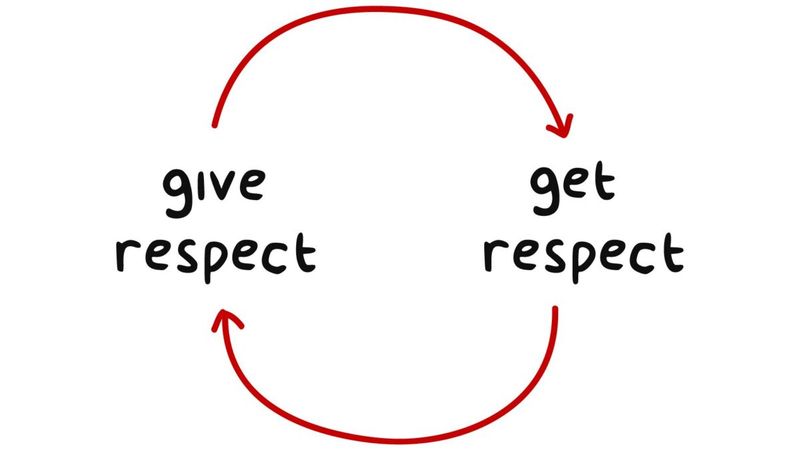36 Ways To Set Boundaries In A Relationship

Setting healthy boundaries is essential for any thriving relationship. Boundaries help us communicate our needs, protect our well-being, and build mutual respect with our partners. Learning to establish and maintain these limits can transform your relationship into a space where both people feel safe, valued, and understood.
1. Communicate Your Non-Negotiables

Start by identifying deal-breakers that simply won’t work for you. These might include behaviors related to fidelity, respect, or personal values. Sharing these upfront prevents future heartache.
2. Schedule Alone Time

Everyone needs personal space to recharge. Block off regular time for yourself without feeling guilty. Your relationship will actually benefit when both partners maintain their individual identities.
3. Establish Digital Privacy Rules

Decide together what’s acceptable regarding phone access, social media boundaries, and sharing passwords. Healthy relationships balance openness with respect for privacy. No snooping without permission!
4. Create Financial Boundaries

Money matters can strain relationships. Have frank discussions about spending habits, savings goals, and financial responsibilities. Consider whether joint or separate accounts work best for your situation.
5. Define Family Involvement

Extended family relationships require clear boundaries. Discuss how much influence parents and in-laws should have in your decisions. Supporting each other when family oversteps strengthens your bond.
6. Honor Time Commitments

Respect each other’s schedules and time constraints. Being chronically late or canceling plans shows disregard for your partner’s time. Punctuality demonstrates that you value their presence.
7. Set Work-Life Balance Limits

Jobs can easily encroach on relationship time. Establish when work calls and emails stop each day. Creating work-free zones in your home helps maintain a healthy separation.
8. Address Physical Touch Preferences

Not everyone has the same comfort level with physical affection. Talk openly about your preferences for hugging, hand-holding, and other touches. Never pressure someone to accept unwanted contact.
9. Practice Active Listening

Truly hearing your partner shows respect for their boundaries. Put down your phone, make eye contact, and resist interrupting. Validate their feelings even when you disagree.
10. Limit Social Media Sharing

Discuss what aspects of your relationship belong online. Some prefer keeping private moments private. Agree on guidelines for posting photos, relationship updates, or personal information.
11. Respect Sexual Boundaries

Ongoing communication about comfort levels is essential. Pressure has no place in healthy relationships. Check in regularly, as boundaries can change over time. Consent should always be enthusiastic.
12. Maintain Friendships Outside The Relationship

Healthy couples encourage outside friendships. Resist the urge to abandon friends when partnered up. Individual social connections provide perspective and prevent unhealthy codependence in your relationship.
13. Create Argument Rules

Even disagreements need boundaries. Establish guidelines like no name-calling, taking timeouts when needed, and staying on topic. Fair fighting builds trust rather than eroding it.
14. Establish Personal Space

Everyone deserves physical space to call their own. Whether it’s a desk, drawer, or entire room, having personal territory matters. Respect these areas as off-limits without explicit permission.
15. Discuss Emotional Labor Division

Relationship maintenance shouldn’t fall on one person. Talk about who handles social calendars, family birthdays, and emotional support. Balanced partnerships distribute these invisible responsibilities fairly.
16. Set Communication Preferences

Some need time to process before discussing issues. Others prefer addressing problems immediately. Honor different communication styles by establishing when and how to handle important conversations.
17. Create Holiday Traditions Together

Holidays often trigger boundary issues with extended family. Decide together how to split time between families or create your own traditions. Your relationship deserves priority during special occasions.
18. Protect Sleep Routines

Sleep affects everything from mood to health. Respect differences in sleep needs and schedules. Compromise on bedroom temperature, noise levels, and lighting to ensure both sleep comfortably.
19. Plan Regular Check-ins

Schedule time to discuss how your relationship is working. These conversations prevent small issues from festering. Ask specific questions like “Are your needs being met?” rather than general ones.
20. Establish Household Responsibilities

Resentment grows when chores are unbalanced. Create clear agreements about who handles what tasks. Revisit these arrangements periodically as circumstances change. Flexibility matters as much as fairness.
21. Honor Different Interests

You don’t need to share every hobby. Support each other’s separate interests without guilt or pressure to participate. Celebrating differences enriches your relationship rather than threatening it.
22. Define Public Display Boundaries

Comfort levels with affection vary widely. Discuss what feels appropriate in different settings. Respecting these preferences shows consideration for your partner’s feelings rather than focusing on your own.
23. Respect Religious Differences

Faith can be deeply personal. Establish how religious practices will fit into your relationship. Whether participating, observing, or maintaining separate practices, mutual respect remains essential.
24. Negotiate TV and Movie Choices

Entertainment preferences reveal different triggers and interests. Create systems for choosing what to watch together. Respect hard limits on content that makes your partner genuinely uncomfortable.
25. Establish Political Discussion Rules

Political differences needn’t doom relationships. Set parameters for respectful conversations about sensitive topics. Know when to engage and when certain discussions aren’t productive for your relationship.
26. Create Boundaries With Technology

Constant device use can damage connection. Establish tech-free times and zones in your home. Quality time suffers when screens consistently take priority over face-to-face interaction.
27. Respect Introvert/Extrovert Needs

Energy needs differ dramatically between personality types. Introverts require solitude to recharge while extroverts gain energy from socializing. Honoring these differences prevents unnecessary relationship strain.
28. Manage In-Law Relationships

Each partner should handle conflicts with their own family. Stand united when setting boundaries with parents and siblings. Supporting each other against family pressure strengthens your partnership immensely.
29. Establish Gift-Giving Guidelines

Present exchanges can create pressure or disappointment. Discuss expectations about occasions, budgets, and types of gifts. Some prefer experiences over objects, while others value thoughtfulness above cost.
30. Navigate Health Decisions Together

Personal health remains individual, but impacts partners too. Discuss how much input each has in the other’s health choices. Support without controlling creates the healthiest dynamic.
31. Set Cleanliness Standards

Couple creating cleaning schedule on whiteboard with areas divided into zones of responsibility
32. Respect Parenting Approaches

Parents must present unified boundaries to children. Discuss discipline styles and core values before issues arise. Children benefit from consistent expectations, even when parenting styles naturally differ.
33. Define Pet Responsibilities

Animal care often falls unevenly on one partner. Clearly divide feeding, walking, and veterinary responsibilities. Pets bring joy but also require boundary-setting to prevent relationship resentment.
34. Establish Crisis Response Plans

Emergencies reveal relationship dynamics instantly. Discuss how you’ll handle family crises, health scares, or financial emergencies. Having boundaries for stressful situations prevents destructive reactions.
35. Protect Your Personal Growth

Healthy relationships encourage individual development. Discuss how to support each other’s goals and dreams. Partners should uplift rather than hinder personal evolution and learning opportunities.
36. Learn To Say No Without Guilt

Refusing requests doesn’t mean rejecting your partner. Practice clear, kind refusals when something doesn’t work for you. Healthy boundaries require the courage to disappoint occasionally without apology.
